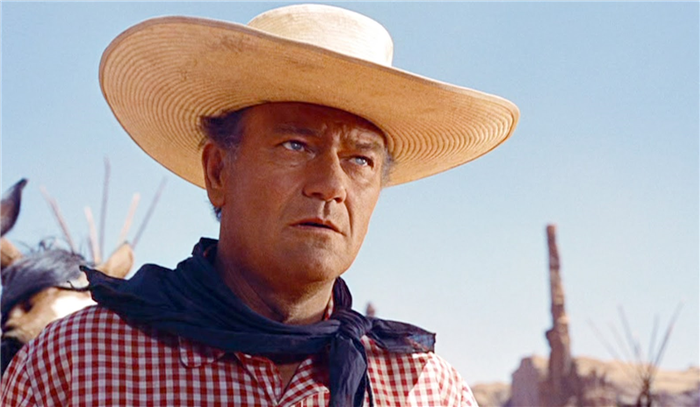JOHN WAYNE, born Marion Michael Morrison, was a Western megastar. While making at least 74 films, it was in 1964, when appearing in Circus World, when he first learned of his tumour.
A heavy smoker, John Wayne – nicknamed the Duke – received a lung cancer diagnosis when he was 57; he then had his left lung removed. Fast forward to 1979, and the father-of-seven had a cancerous tumour growing in his stomach – and it killed him. Pronounced dead on June 11, 1979, at UCLA Medical Center, California, the Duke was 72.
In the lead up to his death, Wayne was admitted to hospital to have an intestinal obstruction removed, Variety Magazine reported.
And it was during this operation where doctors discovered cancerous tissue in his body for the second time that year.
On January 12, 1979, medics found a malignant tumour in his stomach, which was removed during a nine-hour operation.

By April 20, 1979, Wayne went in for treatment of a bronchial condition brought on by the flu.
And, then, two months later, the Duke had taken his last breath in a hospital bed.
Wayne was very aware that his time was coming to an end, many years before he said his last goodbyes.
In 1973, the year Cahill US Marshall was released, Wayne told journalists: “I’m pretty much living on borrowed time.”
Having faced cancer once before, there was a risk that a tumour would reappear.
Cancer Research UK stated: “Some types of cancer can come back many years after they were first diagnosed.”
The charity continued: “It can be very difficult to live with the fact that your cancer may come back.
“For most people who are in this situation, each day lowers the risk of a recurrence.”
Lung cancer
When a tumour develops in one or both of the lungs, symptoms tend not to develop until the condition has progressed.
Cancer Research UK stated: “Some types of cancer can come back many years after they were first diagnosed.”
The charity continued: “It can be very difficult to live with the fact that your cancer may come back.
“For most people who are in this situation, each day lowers the risk of a recurrence.”

Lung cancer
When a tumour develops in one or both of the lungs, symptoms tend not to develop until the condition has progressed.
What causes lung cancer?
“Most cases of lung cancer are caused by smoking,” the NHS certified.
“Smoking cigarettes is the single biggest risk factor for lung cancer. It’s responsible for more than 70 percent of cases.”
Stomach cancer
A tumour in the stomach can affect digestion, leading to heartburn, acid reflux, nausea, and indigestion.
The cancer could also lead to unexplained weight loss, a feeling of exhaustion, and a lump at the top of the stomach.
Anybody who is experiencing symptoms of cancer is highly advised to book an appointment with their doctor to discuss their concerns.
An early diagnosis increases the likelihood of successful treatment.

Leave a Reply